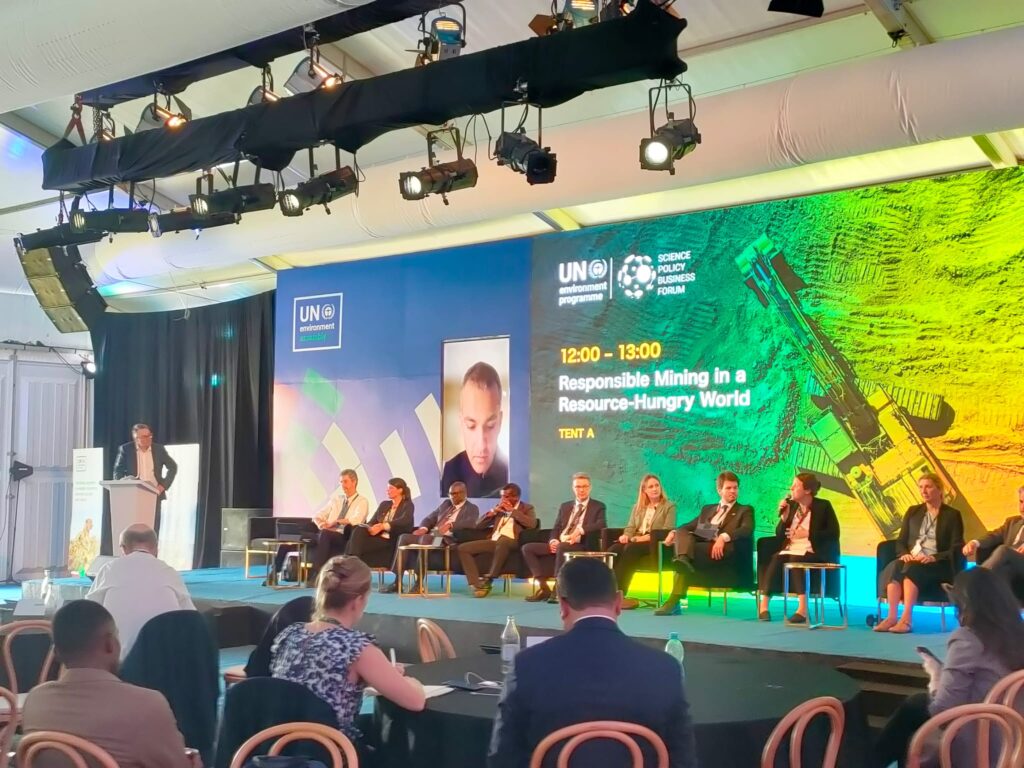|
Getting your Trinity Audio player ready...
|
As the energy transition accelerates global demand for minerals and metals, the United Nations Environment Programme and the Member States represented at UNEA met last week to address the potential risks and harms posed by mining. Regrettably, the outcomes failed to take the essential steps to address risks posed by mining and lost much of the policy momentum UNEP had built in the lead up to UNEA-6, to the disappointment of many stakeholder and rights holders groups. Member States did not meet the challenges of mineral governance with the urgency the world needs to truly ensure a clean, just, and equitable transition away from fossil fuels. Instead, they posed procedural roadblocks, stripped away the strongest provisions, and finally settled on a text that does not propose meaningful outcomes.

Mining impacted communities, Indigenous Peoples, workers, and civil society, including Children and Youth, have been working to identify a path forward for the mining industry that promotes intergenerational equity, respect for human rights and Indigenous Peoples’ sovereignty, and responsible environmental stewardship. This path will be dependent on reducing the demand for primary raw materials, reducing material intensity and improving material efficiency, and adopting circular economy approaches. A value chain approach must account for water pollution, land degradation, and ecological destruction at a systemic, holistic level.
These issues were raised in the International Resource Panel’s 2024 Global Resources Outlook, launched at UNEA-6 amidst ongoing negotiations. The report raises important points regarding the rising trends in global resource consumption and demand, and the need for balanced policy solutions with a stronger demand-side focus. It also highlights the course correction needed to ensure resource efficiency and sufficiency without transgressing planetary boundaries – built environment, mobility, food, and energy represent 90% of the global material demand. Echoing the positions raised by stakeholders during UNEA6 negotiations, the report underscores that a systemic shift is needed to safeguard the future material reality of the planet and the finite resources available for planetary well-being.
UNEP was established to monitor the state of the environment and inform environmental policymaking with scientific evidence. In this regard, it is clear that UNEP has a strong mandate to convene multi-stakeholder dialogues, strengthen capacities, and encourage global coordination on addressing environmental challenges in the mining sector. Despite the disappointing lack of ambition in the newly adopted resolution, UNEP will continue to play a leading role in initiatives such as the UN Secretary General’s Working Group on Transforming Extractive Industries for Sustainable Development and the UN Framework on Just Transitions for Critical Energy Transition Minerals.
